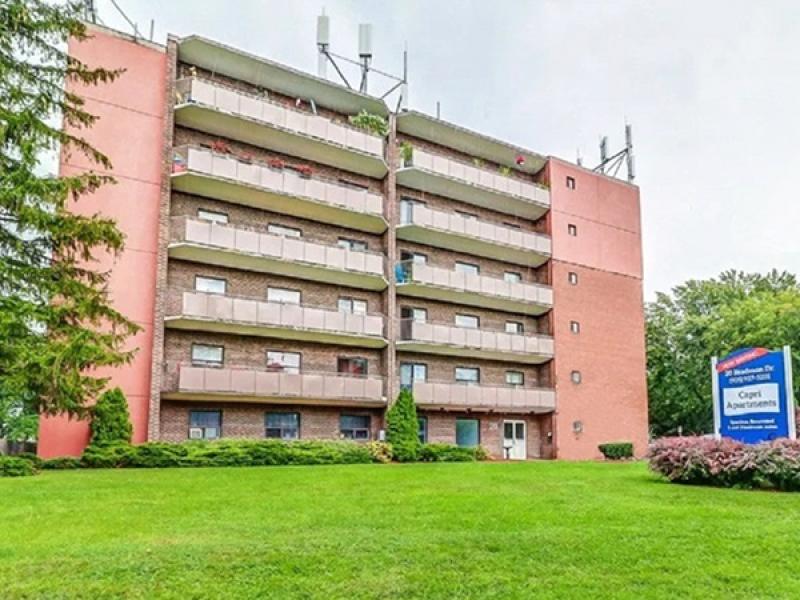
A strong demand for well-located, essentials-based retail has resulted in RioCan Real Estate Investment Trust (REI.UN-T) achieving a record high retail committed occupancy rate of 98.6 per cent, the REIT announced as it delivered its Q3 2024 results.
“We find for our sites, which are all primary market located (and) all in the high-growth markets, retailers are hungry for space,” RioCan’s chief operating officer John Ballantyne told RENX in an interview following the release of the results.
Ballantyne noted no significant new retail has built over the past four to five years in Canada, “nor do we foresee any retail of substance being built over the short term.”
In addition, population growth and a four per cent decrease in retail GLA per capita due to the intensification of sites, have heightened demand for retail, particularly essentials-based retail, he said.
“Not only are (retailers) becoming more aggressive in demand for any vacant space that we have, but they’re also affording themselves to pay a little bit more rent on the renewal side from existing leases.”
Key elements of RioCan's Q3 activity
During a Tuesday conference call with analysts, RioCan president and CEO Jonathan Gitlin said “market fundamentals favour retail real estate.” Premium real estate is limited, and this situation will likely persist due to tough zoning laws and high construction costs, he said.
During Q3, RioCan finalized 1.28 million sq. ft. of leases, including 251,000 sq. ft. of new leases.
The REIT was able to lease 10 vacant sites stemming from the failures of Bad Boy and Rooms + Spaces, which occupied 161,000 sq. ft. in its centres, to retailers such as Longo’s, Winners, HomeSense and No Frills. The new leases feature 23.9 per cent higher base rents.
RioCan also said traffic at its The Well mixed-use development in downtown Toronto is exceeding expectations, with average traffic of 160,000 to 200,000 people per week. The Well's retail space is 95 per cent leased.
During the quarter, RioCan reduced its workforce by about 9.5 per cent or about 50 employees. Its workforce now numbers about 450.
Ballantyne said the move was due in large part to a decision to significantly reduce construction spending and to the implementation of a new Yardi accounting system through which it realized some efficiencies.
Halt on new construction still in force
“We’ve halted the start of new construction, and we don’t intend to start physical construction of mixed-use properties any time soon,” Gitlin said. “We continue to drive value from rezoning and enhancing existing entitlements, but will not initiate any capital-intensive projects for the foreseeable future.”
Development spending on mixed-use projects which were in progress prior to the reduction in new construction starts, is expected to be between $250 million to $300 million. Development spending for retail in-fill projects is expected to be between $30 million to $40 million.
Ballantyne said RioCan has been very active in development over the past five to 10 years and will be ready to resume its construction activities when capital becomes a bit cheaper and demand continues to increase, especially for residential product.
Gitlin said despite a significant amount of focus on RioCan’s presold condo units and the associated risks if they don’t close, “we do not view this as a material risk.” While Canada’s condo market is under strain and it is difficult to dispose of unsold inventory “it's important to note that RioCan is not relying on the disposition of unsold inventory to achieve our balance sheet objectives.”
He said RioCan has presold about 90 per cent of the 2,500 condo units from the six active condo construction projects it will complete through 2026 to buyers that passed credit checks and gave average deposits of about 19 per cent.
RioCan expects to generate sales revenue of approximately $607 million between the remainder of 2024 and 2026 from these condominium and townhouse construction projects.
“The vast majority of these condo sales were concluded before the market peaked and the closing prices are below market value,” Gitlin said. “In addition, interest rates have decreased and will likely continue to do so. This makes carrying costs for our purchasers more viable and will help facilitate transactions.”
Strada multifamily sale in Toronto
RioCan also announced that after quarter end, the REIT and Allied Properties REIT agreed to sell Strada, a 62-unit multifamily property at 555 College St. in downtown Toronto, for $24 million for RioCan's 50 per cent interest.
“That was really opportunistic,” Ballantyne said, noting RioCan received an unsolicited offer with a very attractive evaluation from an undisclosed buyer. “It was an opportunity to monetize a piece of our residential portfolio.”
Ballantyne added that RioCan’s strategy over the last 10 years has been to make its portfolio better by “disposing of assets that we believe don’t have the proper growth profile” often due to their location, or by injecting capital into real estate it owns, or by improving tenant mixes.
As of September 30, 2024, RioCan’s portfolio was comprised of 186 properties with an aggregate net leasable area of approximately 33 million square feet.










